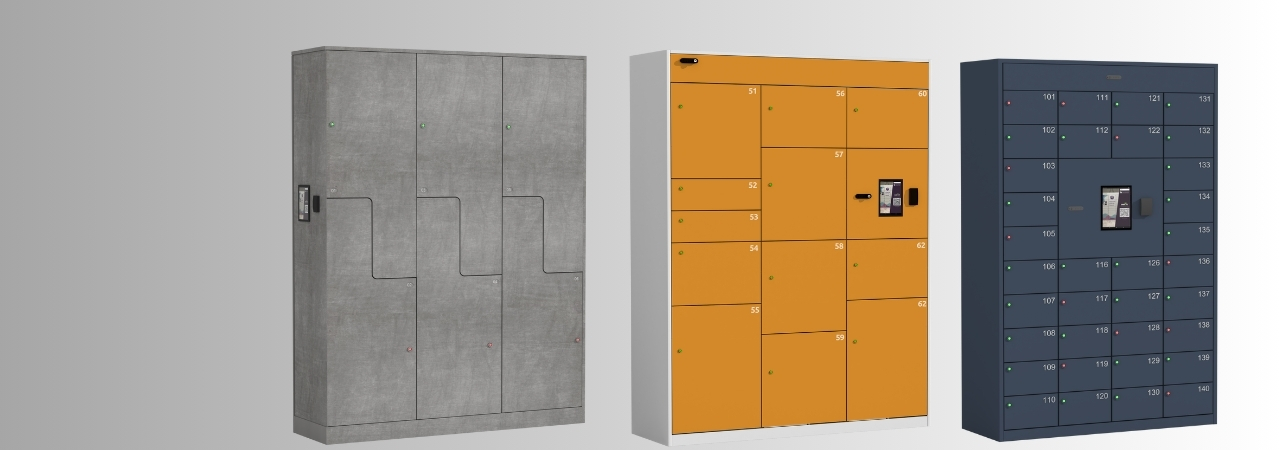Indusrty-wise Applications
Inspired by Latest Technology
Hardware
Locking Mechanism :
Smart lockers are equipped with electronic locking mechanisms, which can be operated remotely via software commands or through physical input methods like keypads, biometric scanners, or RFID cards.
Software
Access Control :
The software manages user access rights and authentication methods. It authenticates users based on credentials such as PIN codes, biometric data, RFID cards, or mobile app authentication tokens. It grants or denies access to lockers based on user permissions and access policies.
Sensors :
These sensors detect various events such as locker door openings, unauthorized access attempts, or environmental conditions like temperature and humidity. They provide real-time data to the software system for monitoring and control.
Remote Management :
The software provides remote management capabilities, allowing administrators to monitor and control the lockers from a central management system or mobile application. They can remotely lock or unlock specific lockers, view access logs, and receive real-time alerts for security incidents or system malfunctions.
Communication Interfaces :
Smart lockers have built-in communication interfaces such as Wi-Fi, Bluetooth, or cellular connectivity. These interfaces enable the locker to communicate with the central management system and mobile applications for remote access and control.
User Management :
Administrators can manage user accounts, assign access rights, and track user activity through the software interface. They can add or remove users, reset passwords, and customize access permissions for different user groups.
Power Supply :
Smart lockers require power to operate electronic components such as locking mechanisms, sensors, and communication modules. They are typically powered by mains electricity or batteries, with backup power options for uninterrupted operation.
Audit Trail :
The software maintains an audit trail of all locker-related activities, including user access events, locker openings, and system alerts. This audit trail helps in tracking usage patterns, investigating security incidents, and ensuring compliance with regulatory requirements.
User Interface :
Smart lockers may have a user interface for interacting with the system, which could include a touchscreen display or LED indicators to provide feedback on locker status and instructions for users.
VMK International Smart Lockers
For Customers




